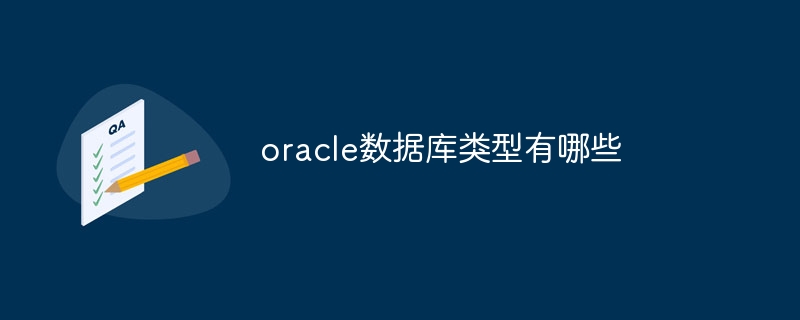Oracle database types offer different capabilities including: Multi-Mode (MM), RAC, NoSQL, Autonomous Database, Exadata, Appliance, and Vault. Choosing the appropriate type depends on application and workload requirements, including data type, batch size, scalability, performance, and cost.

Oracle database types
Introduction
Oracle database provides many database types to meet the needs of different applications and workloads. These types mainly include:
Multi-Mode (MM)
- Standard Oracle database types that provide a wide range of functionality and flexibility.
- Suitable for most applications, including transaction processing, data warehousing and analytics.
Real Application Clusters (RAC)
- A group of fault-tolerant servers sharing the same database.
- Provides high availability, scalability and performance.
Oracle NoSQL Database
- A schema-less database based on key-value storage.
- Designed for handling large amounts of unstructured data.
Oracle Autonomous Database
- A fully managed cloud database service.
- Automatically handle management, maintenance and tuning tasks.
Oracle Exadata Database Machine
- A highly optimized integrated server and storage system.
- Designed for handling data warehousing and analytical workloads.
Oracle Database Appliance
- A preconfigured database server and storage device.
- Optimized for specific workloads, such as business intelligence and data warehousing.
Oracle Database Vault
- A secure database used to protect sensitive data from insider threats.
- Provides fine-grained access control and auditing.
Specific differences
- Function:MM provides the most comprehensive functions, while NoSQL is suitable for unstructured data processing .
- Availability:RAC provides the highest level of availability, while other types provide varying levels of redundancy.
- Scalability:RAC and Exadata are highly scalable, while other types may be limited.
- Performance:Exadata is optimized for specific workloads, while other types provide more general performance.
- Cost:Autonomous Database is a managed service, while other types require deployment and maintenance costs.
Choose a database type
Choosing the appropriate database type depends on the specific requirements of your application and workload. Consider the following factors:
- Data types and batching
- Availability requirements
- Scalability requirements
- Performance requirements
- Cost Budget
The above is the detailed content of What are the types of oracle databases?. For more information, please follow other related articles on the PHP Chinese website!





